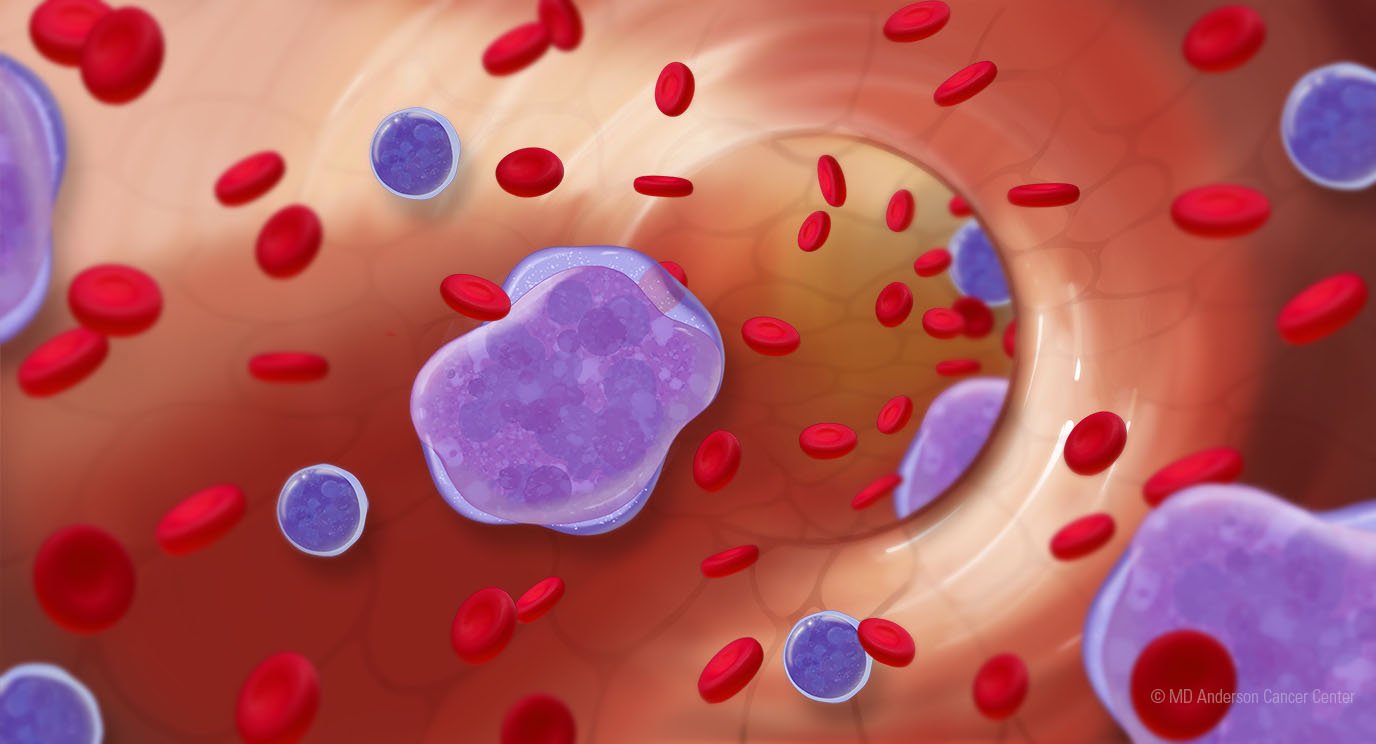- Diseases
- Acoustic Neuroma (16)
- Adrenal Gland Tumor (24)
- Anal Cancer (70)
- Anemia (2)
- Appendix Cancer (18)
- Bile Duct Cancer (26)
- Bladder Cancer (74)
- Brain Metastases (28)
- Brain Tumor (234)
- Breast Cancer (726)
- Breast Implant-Associated Anaplastic Large Cell Lymphoma (2)
- Cancer of Unknown Primary (4)
- Carcinoid Tumor (8)
- Cervical Cancer (164)
- Colon Cancer (168)
- Colorectal Cancer (118)
- Endocrine Tumor (4)
- Esophageal Cancer (44)
- Eye Cancer (36)
- Fallopian Tube Cancer (8)
- Germ Cell Tumor (4)
- Gestational Trophoblastic Disease (2)
- Head and Neck Cancer (14)
- Kidney Cancer (130)
- Leukemia (342)
- Liver Cancer (50)
- Lung Cancer (286)
- Lymphoma (278)
- Mesothelioma (14)
- Metastasis (30)
- Multiple Myeloma (100)
- Myelodysplastic Syndrome (60)
- Myeloproliferative Neoplasm (6)
- Neuroendocrine Tumors (16)
- Oral Cancer (102)
- Ovarian Cancer (178)
- Pancreatic Cancer (160)
- Parathyroid Disease (2)
- Penile Cancer (14)
- Pituitary Tumor (6)
- Prostate Cancer (150)
- Rectal Cancer (58)
- Renal Medullary Carcinoma (6)
- Salivary Gland Cancer (14)
- Sarcoma (238)
- Skin Cancer (300)
- Skull Base Tumors (56)
- Spinal Tumor (12)
- Stomach Cancer (66)
- Testicular Cancer (28)
- Throat Cancer (92)
- Thymoma (6)
- Thyroid Cancer (100)
- Tonsil Cancer (30)
- Uterine Cancer (86)
- Vaginal Cancer (18)
- Vulvar Cancer (22)
- Cancer Topic
- Adolescent and Young Adult Cancer Issues (22)
- Advance Care Planning (12)
- Biostatistics (2)
- Blood Donation (18)
- Bone Health (8)
- COVID-19 (360)
- Cancer Recurrence (120)
- Childhood Cancer Issues (120)
- Clinical Trials (628)
- Complementary Integrative Medicine (22)
- Cytogenetics (2)
- DNA Methylation (4)
- Diagnosis (238)
- Epigenetics (6)
- Fertility (62)
- Follow-up Guidelines (2)
- Health Disparities (14)
- Hereditary Cancer Syndromes (128)
- Immunology (18)
- Li-Fraumeni Syndrome (8)
- Mental Health (122)
- Molecular Diagnostics (8)
- Pain Management (62)
- Palliative Care (8)
- Pathology (10)
- Physical Therapy (18)
- Pregnancy (18)
- Prevention (936)
- Research (390)
- Second Opinion (78)
- Sexuality (16)
- Side Effects (616)
- Sleep Disorders (10)
- Stem Cell Transplantation Cellular Therapy (216)
- Support (408)
- Survivorship (328)
- Symptoms (182)
- Treatment (1788)
‘How I knew I had lymphoma’: 6 survivors describe their symptoms
4 minute read | Published September 30, 2024
Medically Reviewed | Last reviewed by Saira Ahmed, M.D., on September 30, 2024
Night sweats, persistent fevers and unexplained weight loss are three of the most common symptoms of lymphoma, whether they stem from Hodgkin lymphoma or non-Hodgkin lymphoma. But each one has to meet certain criteria to be considered a possible sign of blood cancer.
In adults, that means:
- Night sweats must happen repeatedly, not be due to menopause-related hot flashes, and you should be drenched in sweat to the point that you have to get up and change your nightclothes and/or sheets at least once before morning.
- Weight loss must reflect 10% or more of your body weight, though you’re not actively trying to lose it.
- Fever must be persistent, higher than 100.4 degrees Fahrenheit and not due to an underlying infection.
“Lymphomas can be divided into two basic categories: aggressive and indolent,” explains lymphoma specialist Saira Ahmed, M.D. “Aggressive lymphomas grow and spread quickly, and can cause significant damage to tissue and organs. Because they are fast-growing, they are most commonly associated with what’s known as ‘B’ symptoms. Indolent lymphomas, on the other hand, are slow-growing. They may not cause any symptoms at all, or cause symptoms that come and go over long periods of time.”
Here's how six of our patients knew they had lymphoma, in their own words.
Swollen lymph nodes
“I went to the doctor about a lump in my throat,” says Rob Moss, who was 49 when he was diagnosed with non-Hodgkin lymphoma. “It grew and shrank several times. My doctor said it was probably a ‘thyroglossal duct cyst,’ or a growth on my thyroid. It turned out to be a swollen lymph node.”
Weight loss
“I lost 20 pounds in a few weeks, was extremely short of breath and was so tired I could barely cross a room without needing to sit down,” says Shelby Wade, who was 23 when she was diagnosed with B-cell lymphoma. “I was also very hoarse and coughing a lot.”
Night sweats
“I experienced severe headaches, a consistent dry cough, weight loss and night sweats for about a month,” says Omar Dirani, who was 30 when he was diagnosed with non-Hodgkin lymphoma. “I thought I was sweating a lot because of all the exercise I was doing.”
Cough
“I thought I had a cold or the flu,” says Jeff Johnson, who was 38 when he was diagnosed with Hodgkin lymphoma. “But the cough that came with it never went away. I kept visiting our family physician and trying different medications, but nothing helped.”
Pain
“I was having back pains on the left side of my kidney area,” recalls Ann Sorhouse, who was 49 when she was diagnosed with non-Hodgkin lymphoma. “But I was doing a lot of physical labor, so I attributed it to muscle strain.”
Itching
“I started having intense itching just a few months after I felt a lump on my collar bone,” recalls Mallory Parrish, who was 32 when she was diagnosed with Hodgkin lymphoma. “At first, I thought it might be a yeast infection, but an over-the-counter anti-fungal treatment didn’t help.”
When to see a doctor about your lymphoma symptoms
Ahmed recommends contacting a physician if your symptoms last more than two weeks without improvement.
“The more symptoms you have, the more concerned you should be,” she explains. “If you have multiple B symptoms that last more than two weeks, see your doctor right away. If you only have one symptom, but it’s inconsistent, just make your doctor aware of it.”
Lymphoma symptoms that you shouldn’t ignore
Some lymphoma symptoms are considered so serious that they warrant an immediate trip to the emergency room. These include:
Spinal cord compression
This can manifest as back pain, leg weakness, bowel or bladder incontinence, vision problems, changes in mental status, or altered sensation in the areas of the leg and buttocks that would typically be in contact with a saddle.
Superior vena cava obstruction
This can appear as difficulty breathing, chest pain, face or neck swelling, or difficulty swallowing. It’s usually due to a mass of clogged lymph nodes in the middle of the chest.
Tumorlysis
Caused by rapidly dying lymphoma cells, this condition can lead to heart arrhythmia, kidney problems and an overall sensation of just not feeling well. If you get blood work done, it may also show you have elevated potassium levels or white blood cell counts.
“Roughly 40% to 50% of patients with aggressive lymphomas show symptoms before their diagnosis,” notes Ahmed. “But only about 10% or less of patients with indolent lymphoma do.”
Lymphoma symptoms can occur with any type or stage of disease, but they’re more commonly seen in fast-growing lymphomas and when the disease is more advanced. That’s why it’s important to get symptoms checked out quickly.
Request an appointment at MD Anderson online or call 1-855-553-7639.
Key takeaways
- Night sweats, persistent fevers and unexplained weight loss are three of the most common lymphoma symptoms.
- Symptoms can appear with any type of lymphoma, but they're more commonly seen in advanced, fast-growing blood cancers.
- Some lymphoma symptoms are serious enough to warrant an immediate trip to the emergency room.
Related Cancerwise Stories

I could barely cross a room without needing to sit down.
Shelby Wade
Survivor





